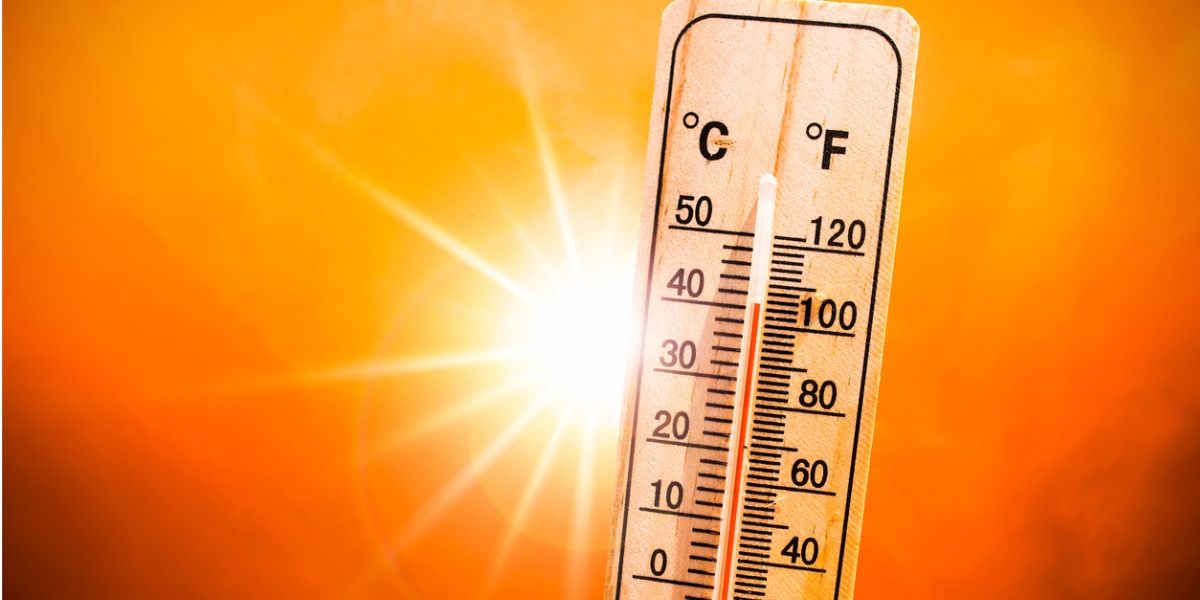Summer 2023 was very hot, which raises a question people rarely think about: does extreme heat have an effect on mental health?
According to NASA’s Goddard Institute for Space Studies (GISS), July 2023 was the hottest month on earth since at least 1880, when we started keeping worldwide records on average temperatures.
As stunning as this announcement is, it’s overshadowed by the knowledge that this record won’t last long. In fact, by the time we publish this article, that record may have been broken.
Record-setting heat events are now commonplace. For example:
- The Copernicus Climate Change Service (CCCS) indicated July 6, 2023, had highest daily mean temperature since the CCCS began tracking data in 1940. It broke a record set the previous day.
- The World Meteorological Organization (WMO) reported that past 8 years (2015-2022) as the eight hottest years on record since 1850.
- The WMO reported that, since the 1980s, average temperatures per decade have increased each decade.
In other words, Earth is in the midst of an extreme heat event. And all evidence suggests that it’s going to get even warmer.
Though some politicians continue to spar over the causes – or even the existence – of this trend, organizations such as the U.S. Department of Defense, the American Medical Association, and the American Society of Civil Engineers acknowledge it, and address the many ways climate change impacts public health, national security, and the stability of infrastructure throughout the world.
But what about the psychological well-being of individuals in the United States and across the globe? How does extreme heat impact mental health? And how can people protect themselves and their loved ones from this growing danger?
The Effect of Extreme Heat on Mental Health Symptoms
If you find yourself becoming a bit more irritable when the weather becomes uncomfortably hot, you are far from alone.
As reported in a July 24, 2023, article on the Baylor College of Medicine website, elevated stress levels and increases in aggression, anger, and related emotions often accompany rising temperatures. These effects can impact everyone – but people with mental illness and/or addiction may be at elevated risk.
According to Baylor professor Asim Shah, MD, “All mental illnesses increase with heat because it results in more fatigue, irritability, and anxiety, and it can exacerbate depressive episodes.”
The information in the Baylor article aligns with prior research, including a report in the January-April 2015 edition of the Indian Journal of Occupational and Environmental Medicine. Highlights of that report:
- An Australian study linking heat waves with increased admission rates for people seeking care for mental illnesses.
- A Thai study showing a connection between increased heat and greater psychological distress among workers.
- Data suggesting acts of aggression and criminality increase during hot summer months.
The authors of the article published in India also reported that increased temperatures and prolonged droughts may contribute to elevated suicide rates, especially among farmers.
Heat Prompts Increased Requests for Mental Health Care
A February 2022 JAMA Psychiatry study reported that requests for professional mental health services increase during particularly hot periods. This study involved an analysis of data from more than two million adults and more than three million emergency department (ED) visits.
The team that conducted this analysis noted previous research suggests that ED visits due to mood disorders, anxiety disorders, schizophrenia, and substance use concerns tend to increase during warmer months. However, since these findings were based on smaller studies, the team launched a more extensive effort to confirm or disprove them:
- The researchers collected data from medical claims from the OptumLabs Data Warehouse submitted between Jan. 1, 2010, and Dec. 31, 2019. The claims came from locations throughout the United States.
- The research team limited their analysis to claims that involved adults aged 18 and above.
- They further limited the scope of their analysis by only including claims for ED visits from May through September, which are typically the warmest months in the U.S.
- They cross-referenced the medical data with daily maximum ambient temperature information collected by the PRISM Climate Group.
The research team also identified days of extreme heat, defined as temperature was in the 95th percentile of the temperature distribution. Comparing health data with the temperature reports, they found that days of extreme heat were associated with increases in ED visits for the following disorders.
Extreme Heat and Mental Health: Incidence Rate Ratios (IRRs)
- Any mental health condition (incidence rate ratio of 1.08)
- Substance use disorders (IRR of 1.08)
- Anxiety and stress-related disorders (IRR of 1.07)
- Mood disorders (IRR of 1.07)
- Self-harm (IRR of 1.06)
- Schizophrenia, schizotypal disorder, and delusional disorders (IRR of 1.05)
The incidence rate ratio compares admissions during an extreme heat day with admissions during days when the average temperature does not reach the 95th percentile. So, for example, the IRRs listed above indicate that admissions for any mental health disorder were 8 percent higher on extreme heat days, while admissions for schizophrenia were 6 percent higher on extreme heat days.
Why Does Heat Impact Mental Health?
As is typically the case when asking about the causes of mental health concerns, no single answer universally applies to the question, “Why does heat impact mental health?”
The mechanism by which elevated temperatures negatively affect psychological well-being involves a variety of factors.
According to Virginia Chang of the NYU School of Global Public Health, one of these factors is how often a person is exposed to excessive heat. While any extreme heat event can cause problems, Chang told Science News that a sustained uptick in temperature may pose the greatest risk:
“Cumulative exposure to extreme heat can trigger a cascade of events in the brain, including cellular damage, inflammation, and oxidative stress, all of which can exhaust one’s cognitive reserve.”
A July 2021 study in the journal Indoor Air addressed the impact of heat on brain health:
- Researchers found that when the temperature exceeded 79 degrees Fahrenheit, subjects exhibited diminished functioning of the parasympathetic nervous system, which is involved with stress management.
- Researchers found a link between high temperatures and lower arterial blood oxidation level – which means that the brain may not receive as much oxygen during periods of excessive heat.
It’s also important to recognize the external factors – in addition to the air temperature itself – that can influence a person’s mental health during times of extreme heat. For example:
- The physical discomfort and fatigue that can result from high air temperatures can make it more difficult to concentrate, focus, and manage stress.
- During periods of extreme heat, the chances of encountering other people who are angry, irritable, or overly stressed, increase, which can challenge the ability to maintain emotional well-being.
- The effectiveness of some prescription medications can be impacted by extreme heat. Also, some medications may affect your body’s ability to regulate temperature.
- Fear of the many potential social, economic, and health effects of global climate change can cause stress, which can undermine mental health.
Also, extreme heat can contribute to dehydration and disrupted sleep patterns, which are both associated with diminished cognition and an elevated risk of some mental health symptoms.
Protecting Your Mental Health From Heat-Related Harm
Caleb Dresser, a director with the Harvard Chan Center for Climate, Health and Global Environment, told NPR that efforts to adapt to higher temperatures must include behavioral changes to mitigate potential mental health harm.
“As we learn to live in a warming world where the summers are getting hotter, we need to be extra alert to recognize when conditions are dangerous and take steps to stay safe,” Dresser advised.
Here are a few tips that can help you manage your mental health and maintain your cognitive capabilities as the temperature soars:
- Seek A/C: Several studies demonstrate air conditioning can counteract the negative cognitive effects of extreme heat.
- Take cool baths or showers: If you don’t have air conditioning at home, taking cool baths or showers can help you lower your body temperature. A cool bath or shower before bed can increase changes of getting a good night’s sleep.
- Dress appropriately: If possible, wear loose-fitting, cotton clothes. Hats, sunglasses, and sunscreen help.
- Drink water: Proper hydration is essential for both physical and mental health.
- Plan ahead: Factor the heat into your daily planning. If at all possible, avoid being outside during the hottest parts of the day.
Finally, don’t ever hesitate to seek appropriate professional care if your mental health suffers as a result of the heat. And remember that you don’t have to wait until you’re in crisis before reaching out for help. Speaking to a therapist, counselor, or other professional at the first hint of distress can prevent a small problem from becoming a major concern.


 Gianna Melendez
Gianna Melendez Jodie Dahl, CpHT
Jodie Dahl, CpHT